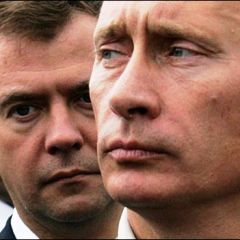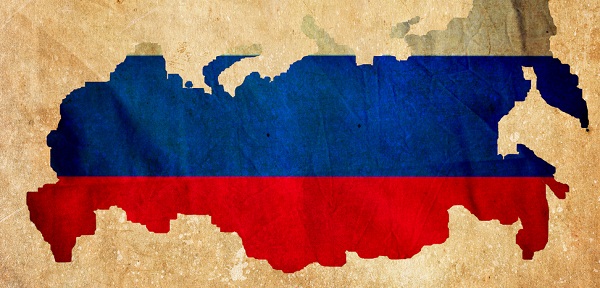 Global action is needed to counter Putin’s crackdown on civil society, says Yuri Dzhibladze, president of the Center for the Development of Democracy and Human Rights
Global action is needed to counter Putin’s crackdown on civil society, says Yuri Dzhibladze, president of the Center for the Development of Democracy and Human Rights
International organisations and governments of democratic nations should send a strong message and take active steps to address the backlash against independent Russian non-governmental organisations.
In 2012, NGOs and online activists played a leading role in exposure of electoral fraud, investigating official corruption and in publicising cases of torture perpetrated by law enforcement. This generated public indignation, bringing people to the streets to protest. The mass protests undermined the regime’s legitimacy and frightened the authorities.
After Putin’s return the Duma began adopting a series of repressive laws, which effectively deprived citizens of their rights to freedoms of expression, assembly and association. The new legislation includes a law re-criminalizing defamation, amendments to the law on espionage and high treason, blacklisting of web sites and a recent law banning “LGBT propaganda.”
The law on “foreign agents” is among the most notorious. Under this legislation NGOs that receive foreign funding and are involved in “political activities” are required to register as “foreign agents.” “Political activity” is defined very broadly as “influencing public opinion and decisions of public authorities with the aim of changing government policy”. This definition allows arbitrary implementation as essentially all NGOs interact with the general public and government institutions. The law introduced harsh penalties for organisations that fail to comply: Fines of over 10,000 Euros; shuttering the NGOs; two-year prison terms for leaders.
The law effectively bans foreign funding. No NGOs have agreed to accept the label of “foreign agent” since, in Russian, it has a strong negative connotation and is unambiguously linked with the words “spy” and “enemy,” smacking of the Stalinist notion of “enemies of the people.”
As a result of an unprecedented wave of inspections by prosecution offices, Ministry of Justice, tax authorities and other governmental agencies that has swept several hundred NGOs across the country since March, more than two dozen leading human rights organisations have been found in violation of the law by failing to register as “foreign agents”. Seven of them were immediately sent to courts. Five have already lost their court cases and have been handed huge fines. Eighteen other groups were given a month to register or face trial.
All these NGOs refuse to obey the repressive law; they will not register as “foreign agents”. Their leaders will appeal to higher courts but with little hope. Almost 40 other NGOs have received official warnings saying that if they continue to engage in “political activity” and decide to receive foreign funding, they would have to register or go to a court. Several hundred groups targeted by the audits are nervously awaiting results of their inspections.
Related
• In war on free expression, Putin approves restrictive legislation
These developments are not an internal affair of the Russian Federation. They contradict not only the Russian constitution but also international obligations of the Russian Federation such as the European Convention of Human Rights, the International Covenant on Civil and Political Rights, standards of the Council of Europe and the OSCE commitments.
What can be done beyond Russian NGOs’ strategy of resistance? Leaders of international organisations and foreign governments can play an extremely important role in this situation by supporting and protecting civic activists and by raising their strongest concern directly with the Russian authorities. If they do not take strong steps immediately to mitigate the crackdown, we will face the demise of independent civil society in Russia in a matter of a few months if not weeks. Many leading organisations will be either shut down by the government or close down voluntarily to avoid criminal prosecution of their leaders. Others will engage in self-censorship or give up foreign funding which will lead to a drastic decrease of their ability to work effectively or continue functioning at all.
Foreign leaders and representatives of international organisations should put the crackdown on civil society at the top of their agenda for all high-level interactions with the Russian government. They should make clear that this crackdown goes contrary to the very essence of international norms and that it fundamentally undermines their relations with Russia. Resolutions strongly condemning the crackdown should be adopted, similar to what the European Parliament did recently.
Leaders of foreign governments should express their strong disagreement with the Russian government in public, not only in closed-door meetings. They should also counter false statements by Russian officials to the effect that the Russian law on foreign agents is modelled after Western laws, is compatible with international human rights norms, is not of a punitive nature and serves only “informational purposes”.
Similarly, they should dispute Russian officials’ claims that the law on “foreign agents” and its repressive implementation are an “internal matter,” citing universal human rights principles, including the Helsinki Final Act, which recognizes that human rights are a matter of legitimate concern to other states and international organisations.
In addition, democratic countries should be prepared to provide protection to Russian civic activists when they face severe harassment and persecution, including by giving them fellowships, temporary shelter and, in the most dangerous instances, asylum. They should also increase international visibility for Russian civic activists so as to provide them with additional protection, including meeting them regularly at all levels, awarding them international prizes, giving them the floor at sessions of EU institutions and national parliaments.
The crackdown on Russian NGOs is not just another serious human rights violation. It will have an extremely negative impact on the future of Russia, the neighbouring countries, and the international human rights system. The current crackdown on the most experienced, professional and active civil society organisations all over the country endangers the future of Russia and the whole post-Soviet region.
Russian civil society organizations that are now under legal and criminal prosecution need immediate international solidarity and support. It is essential now for those who care about Russia to hear and support endangered voices of Russian NGOs.
Yuri Dzhibladze is president of the Center for the Development of Democracy and Human Rights.






